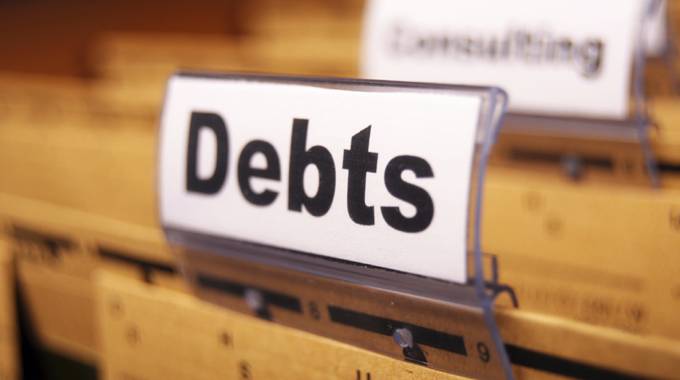Dangers of unintended overdrafts

Sanderson Abel
An overdraft according to Wikipedia occurs when money is withdrawn from a bank account and the available balance goes below zero. In this situation the account is said to be “overdrawn”. If there is a prior agreement with the bank for an overdraft, and the amount overdrawn is within the authorised overdraft limit, then interest is normally charged at the agreed rate.
If the negative balance exceeds the agreed terms, then additional fees may be charged and higher interest rates may apply. If your account ends up overdrawn, be sure to deposit money in your account as soon as possible to cover the overdraft plus any fees that may be assessed. By doing so, you’ll avoid additional overdrafts and fees.
What are the reasons for the overdrafts?
There is need to exercise caution when operating your accounts to avoid falling into unintended overdrafts. The main causes of which might be: The account holder finds themselves short of money and knowingly makes an insufficient-funds debit.
Failure to maintain an accurate account register and the account holder doesn’t accurately account for activity on their account and overspends.
Banks or ATMs may allow cash withdrawals despite insufficient availability of funds. The account holder may or may not be aware of this fact at the time of the withdrawal. If the ATM is unable to communicate with the cardholder’s bank, it may automatically authorise a withdrawal based on limits preset by the authorising network http://en.wikipedia.org/wiki/Interbank_network.
A deposit made to the account can be placed on hold by the bank. The funds may not be immediately available and lead to overdraft fees.
Unexpected electronic withdrawals – At some point in the past the account holder may have authorised electronic withdrawals by a business. This could occur in good faith of both parties if the electronic withdrawal in question is made legally possible by terms of the contract, such as the initiation of a recurring service following a free trial period. The debit could also have been made as a result of a wage garnishment, an offset claim for a taxing agency or a credit account or overdraft with another account with the same bank, or a direct-deposit chargeback in order to recover an overpayment.
A merchant may improperly debit a customer’s account due to human error. For example, a customer may authorize a $5 purchase which may post to the account for $500. The customer has the option to recover these funds through chargeback to the merchant.
The bank charges a fee unexpected to the account holder, creating a negative balance or leaving insufficient funds for a subsequent debit from the same account. The account holder makes a debit while insufficient funds are present in the account believing they will be able to deposit sufficient funds before the debit clears.
Bank Error – A bank may post for an improper amount due to human or computer error, so an amount much larger than the maker intended may be removed from the account. Some bank errors can work to the account holder’s detriment, but others could work to their benefit
What can you do to avoid overdrafts?
The best way to avoid overdraft/insufficient available funds fees is to manage your account carefully. Here are some simple steps to get you on your way.
i. Keep your transaction register up to date. Record all checks or transfers when you write them in your transaction register along with other transactions when you make them. And don’t forget to subtract any fees. Review your account activity and statements carefully. With Online Banking, you can view transactions and monitor account activity, 24 hours a day, 7 days a week. When reviewing your account activity, remember that some transactions and payments may not have cleared or posted to your account yet.
iii. Pay special attention to electronic transactions. If you use an ATM to withdraw cash or your Debit Card to make a purchase or get cash back, be sure to record the transaction in your register.
iv. Don’t forget about automatic payments. If you have automatic payments and deductions from your account, such as your mortgage payment or funeral policy or medical aid, remember to set aside money for them and to record them in your register.
v. Record all transactions immediately and do not assume that they will take days to post to your account. Information from instructions you give to banks eg RTGS payment that you do to pay for purchases or expenses (such utility payments) may be used to make a one-time electronic transfer from your account. Funds from these transactions may be withdrawn from your account on the same day you make the payment.
vi. Consider Direct Deposit. Some of the receipts you get through cash payment can be avoided and assist in avoiding overdraft if you ask those making payments to directly deposit into your account. That means you won’t have to wait in line to make the deposit yourself, and you won’t have to wait for some transactions to clear.
vii. Set up Online Banking alerts. These days, almost each and every bank is operating on an electronic payment hence should opt for one and asks the bank to assists you set up alerts using Online Banking.
You will receive an automatic email alert or prompt on your telephone to notify you if your account balance goes below a threshold that you set.
Sanderson Abel is an economist. He writes in his capacity as senior economist for the Bankers Association of Zimbabwe. For your valuable feedback and comments related to this article, he can be contacted on [email protected] or on numbers 04-744686 and 0772463008








Comments